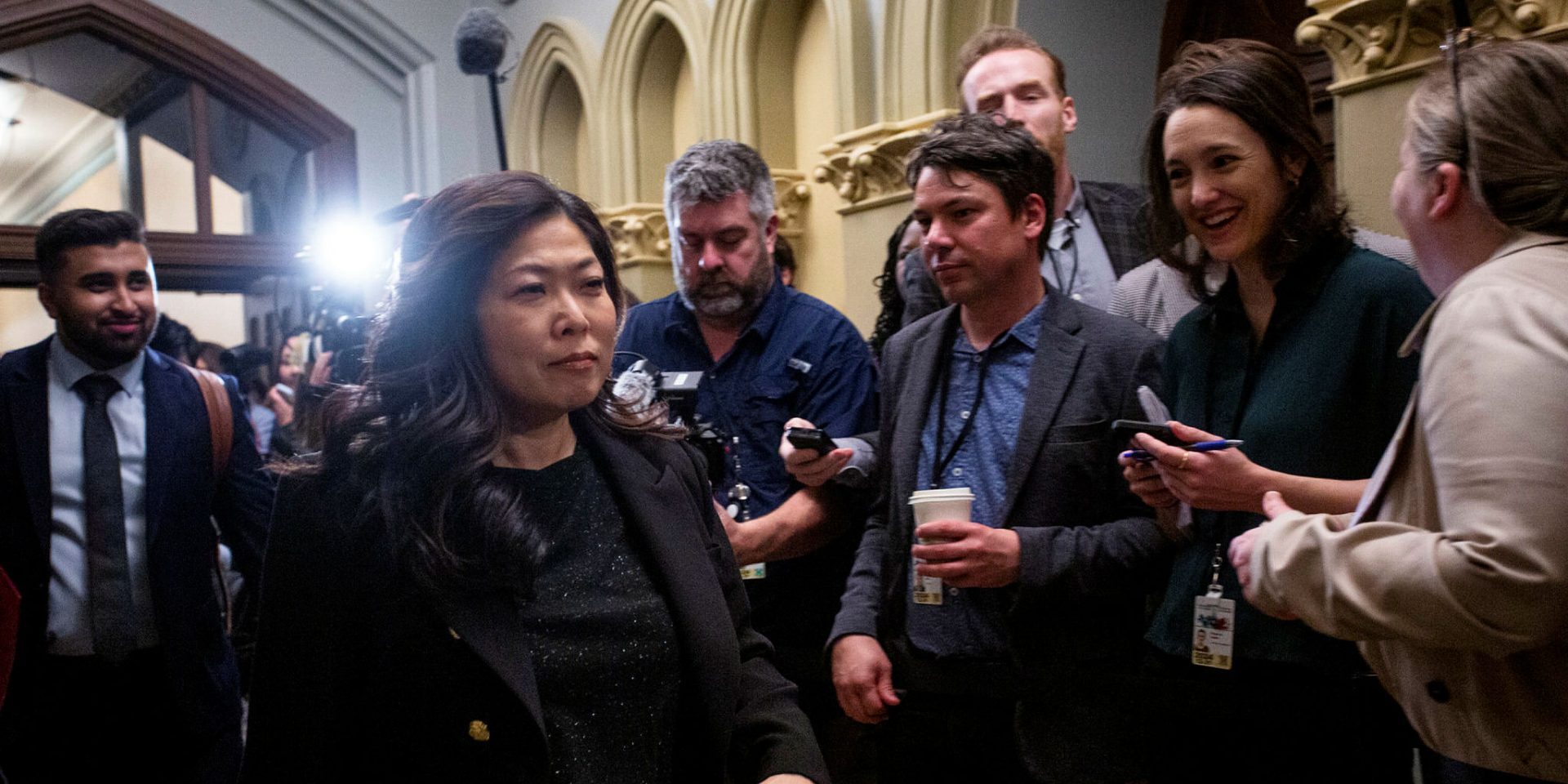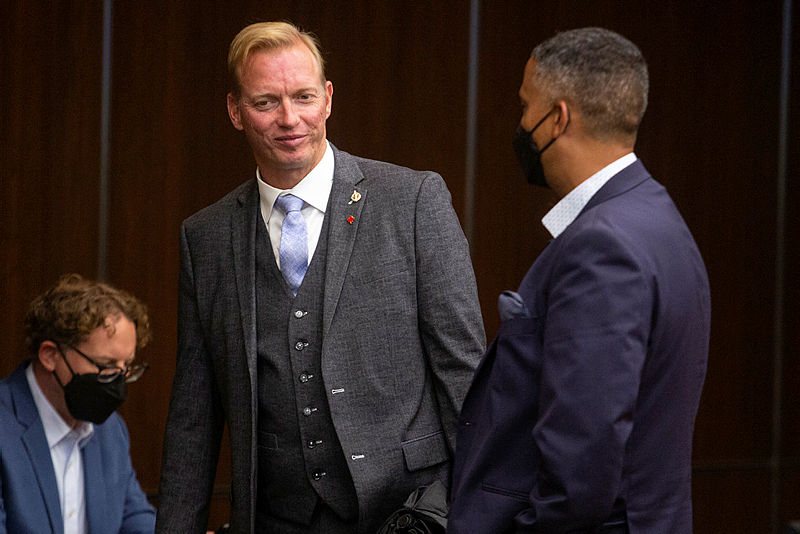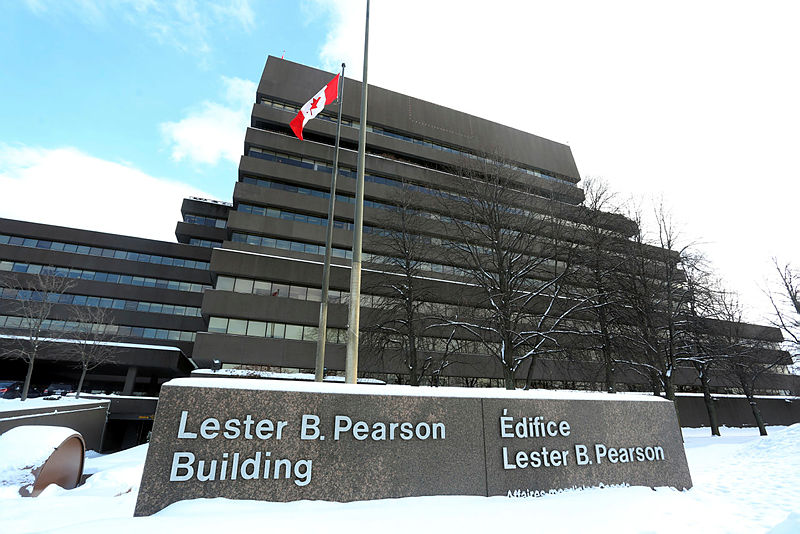Opposition MPs kept in dark as Canada concludes trade pact with Indonesia

As Canada concludes a trade pact with Indonesia, opposition MPs are raising concerns over a lack of transparency since the agreement is yet to be made public, while Canada’s meat industry is celebrating market gains.
International Trade Minister Mary Ng (Markham–Thornhill, Ont.) announced that Canada and Indonesia had completed negotiations on a Comprehensive Economic Partnership Agreement (CEPA) during a trade mission to Indonesia earlier this month. That followed an announcement on the margins of the Asia-Pacific Economic Cooperation (APEC) summit last month by Prime Minister Justin Trudeau (Papineau, Que.) and Indonesian President Prabowo Subianto that negotiations were substantively concluded.
The text of the Canada-Indonesia CEPA has yet to be released. Typically, after a trade agreement is finalized, it goes through a legal scrub as government lawyers pore over the agreed-upon text.
Conservative MP Ryan Williams (Bay of Quinte, Ont.), his party’s international trade critic, said he hasn’t received any formal or informal briefings regarding the details of what has been agreed to.
“The situation around the Canada-Indonesia CEPA is murky at best, with very little transparency regarding the specific terms of the agreement,” he said in an email. “This lack of clarity is concerning, particularly given the potential implications for Canadian industries and our trade relationships.”
Bloc Québécois international trade critic Simon-Pierre Savard-Tremblay (Saint-Hyacinthe–Bagot, Que.) echoed Williams in saying that no formal or informal briefings were given.
“Once again, we don’t know anything, as we’ve known so little during the negotiations,” he told The Hill Times.

Global Affairs Canada (GAC) offered few details as negotiations progressed, forcing many trade watchers to rely on information being released from the Indonesian side.
In early November, an Indonesian trade official was quoted in the that country’s press saying that the two sides had completed the texts on all negotiating issues, and that the deal would be announced as being substantively concluded at APEC, and would be signed during Canada’s trade mission to Indonesia in December.
Asked about the report at the time, GAC would neither confirm nor refute it, remarking that negotiations were “progressing.”
Following the announcement by the two leaders that the pact was substantively concluded, GAC released a brief description of “negotiated outcomes,” with scant details provided.
Will Parliament implement the next pact?
Ng’s office said the next steps for the agreement will be legislative implementation.
As the negotiation of trade deals is under the remit of the executive, MPs can only vote on an implementation bill to make any necessary changes to domestic laws to comply with the agreed-upon pact. Voting not to fully pass an implementation bill has the effect of voting against the entire deal.
The government must table a trade deal 21 sitting days before it can introduce an implementation bill for its ratification. It must also table an economic impact assessment for the new deal.
The previous Liberal-Conservative free trade consensus was shattered during the legislative process for the implementation of the Modernized Canada-Ukraine Free Trade Agreement, as the Conservatives voted against the pact due to the inclusion of language regarding promoting carbon pricing.
The brief information released in the “negotiated outcomes” for the Indonesia CEPA does not explicitly state language on carbon pricing will be included, but notes that the deal’s “comprehensive environment provisions aim to level the playing field by ensuring Parties do not lower their levels of environmental protection to attract trade or investment.”
The “negotiated outcomes” do note that an investor-state dispute settlement (ISDS) system will be included, which has traditionally been opposed by the Bloc and the NDP. The controversial system allows for companies to sue countries through arbitration—and not domestic courts—if changes in domestic law affect their investments.
“We are strongly against it,” Savard-Tremblay said of ISDS provisions, remarking that little has been revealed of what will be included within the environmental chapter.
“We won’t judge until we see the whole agreement,” he said, noting that there is little opportunity for MPs to amend the deal as they vote only on the bill that puts it into place, and not the deal itself.

Savard-Tremblay said he expects that the legislative changes required to incorporate a Canada-Indonesia ISDS system would be included in the implementation bill.
“I’m surely going to vote against the investor-state dispute settlement itself in the bill,” he said. “But we don’t know what we are going to do about the whole bill.”
He said he would like to have Ng to appear in front of the House Trade Committee to explain what was agreed to.
Savard-Tremblay said the committee cannot repeat past mistakes from its study of the Canada-United Kingdom transitional trade deal, which was done without being given a copy of the agreed-upon text.
“We cannot pronounce something on something that we don’t have,” he said. “We know that we can’t take the government’s promises as they are.”
Meat exporters celebrate gains
Canadian Cattle Association (CCA) president Nathan Phinney said he is confident that the forthcoming implementation legislation will pass.
“Regardless if there’s an election down the road between now and then, we’ll be fully supporting the Conservatives, the Liberals, or the NDP, or whichever party may get into [power to] ensure legislation gets passed on this,” he said.
He said his association is “very pleased” with how the negotiators approached the deal, including addressing concerns regarding pacts that don’t adhere to science and rules-based trade.
While the CCA has yet to see the text of the agreement, Phinney cited the memorandum of understanding (MOU) to establish a bilateral dialogue on sanitary and phytosanitary issues as a positive. The MOU was announced on Dec. 4, and signed during Ng’s recent visit.
Phinney said he would like to see legislation passed “very quickly,” but noted that the MOU is a “very important piece” for continuing work.
“It allows the relationship in the background to start being made and make the contacts and try to line logistics up knowing full well that it’s going to come in place,” he said.
Beef exporters have raised concerns in the past over Canada signing trade deals with countries that enact non-tariff barriers that don’t recognize Canada’s food safety regime, including how exporters process carcasses and use hormones in beef.
“The thing that really got us excited is an open and fair trade deal with a population of 280 million people,” said Phinney, who was in Indonesia earlier this month during Canada’s trade mission to the country.
Trade analyst Stuart Trew, a senior researcher at the Canadian Centre for Policy Alternatives, said legislative implementation of the deal is not an open-and-shut case.
“I think it’s still very unclear if this deal can pass,” he said, highlighting the timing of the next federal election, and whether the Conservatives find provisions that they would oppose as potential factors.
“They’re looking for a reason to bring the government down. I think carbon is an important consideration with any mention of carbon trading,” he said. “Maybe they’d up the ante if there’s any mention of some kind of environmental clause in there that would have any effect on Canada’s potential investments.”
Trew said the incoming administration of U.S. president-elect Donald Trump could also be a factor, including how the pact will manage rules of origin, and if it will allow Chinese parts and products to enter Canada duty free through Indonesia.
“Canada has shown it wants to be in step with Trump on all these issues,” he said. “Does Trump end up getting in the way?”
Trew said he is “extremely disappointed” that an ISDS provision was included in the deal, adding that there are also questions on a labour chapter and what has been achieved.
He said the typical labour chapter that Canada includes in its trade deals wouldn’t be “up to snuff” given Indonesia’s history of labour right violations, unless the Canadian government was committed to holding the Indonesian government to account.
“We suspect the worst. We suspect that Canada has taken a step back on labour rights in order to get a deal. We suspect they’ve done the same on the environment in order to get a deal,” Trew said.
nmoss@hilltimes.com
The Hill Times






 LICENSING
LICENSING PODCAST
PODCAST ALERTS
ALERTS













